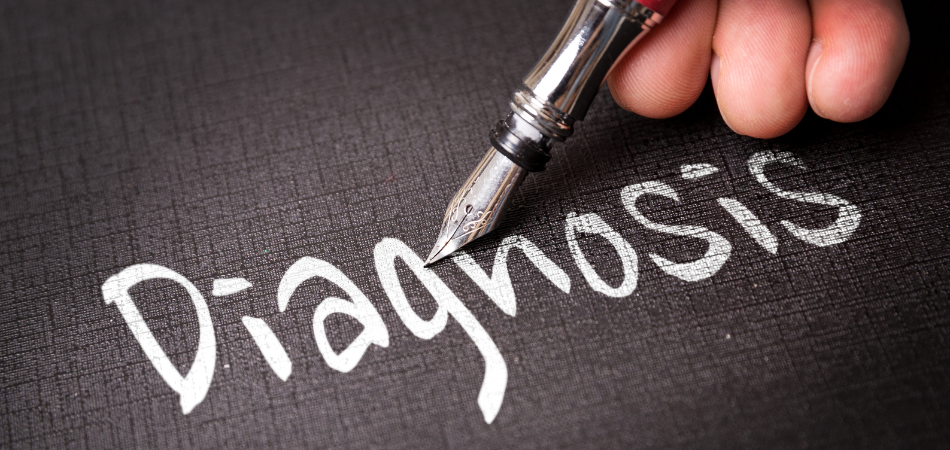Dual diagnosis

Written by:
This Page was last reviewed and changed on January 10th, 2024
Dual diagnosis, also known as a co-occurring disorder, is a condition in which a person suffers from both a mental illness and an addiction. Coping with both at the same time can be very difficult as the two conditions often go hand in hand and fuel and trigger each other. There is hope, however, with proven and effective treatment options available for those struggling with a dual diagnosis.

Why do addiction and mental health disorders co-occur?
There are several reasons why many people suffer from dual diagnosis mental health and addiction issues:
- Many people who suffer from mental illnesses may abuse substances to cope with the symptoms.
- Addiction can lead to changes in the brain that trigger mental illness.
- Mental health disorders and addiction can both be caused by trauma or stress.
The vicious cycle of dual diagnosis and addiction
The reason why dual diagnosis treatment can be so difficult is that the two conditions often fuel and trigger each other. For example, someone with anxiety may turn to drugs or alcohol to try to self-medicate.
Similarly, someone with depression may lose the motivation to stay sober. Addiction can also make mental illness worse. For example, someone who is addicted to drugs or alcohol may have trouble concentrating or sleeping, which can worsen symptoms of ADHD or bipolar disorder.
The cycle of addiction and mental illness can be difficult to break out of without treatment. However, professional treatment centres like Sanctuary Lodge can help you overcome your addiction which will have the knock-on effect of making mental health issues easier to cope with.
Common dual diagnosis disorders
Addiction and ADHD: People with ADHD may self-medicate with drugs or alcohol in order to improve concentration or focus. Stimulants like cocaine and methamphetamine can provide a temporary sense of relief, but they can also lead to addiction.
Addiction and anger management: Many people with anger management issues turn to drugs or alcohol as they help them cope with their emotions. However, this can lead to more problems down the road, as substance abuse can make anger issues worse.
Addiction and anxiety: Anxiety disorders often lead to feelings of fear, worry, and tension which can even be present in some sufferers 24/7. This causes some people to turn to drugs, alcohol or addictive behaviour to soothe the symptoms of anxiety disorders but can end up being physically and psychologically dependent on them as a result.
Addiction and Autism: Autism spectrum disorders are characterised by social, communication, and behavioural challenges. People with autism may self-medicate with drugs or alcohol in order to cope with these challenges but become completely reliant on them in time.
Addiction and BDD: Body dysmorphic disorder is when you have an intense preoccupation with one or more perceived flaws in appearance. People with BDD may turn to drugs or alcohol in order to cope with their distress but this may exacerbate their disorder – both due to the effects that some substances can have on how you look (methamphetamine, for example, can cause all your teeth to fall out) and for the ways some substances alter your perceptions.
Addiction and bipolar disorder: Bipolar disorder involves periods of mania alternating with periods of depression. People with bipolar disorder are susceptible to developing substance abuse disorders as a result of using drugs and alcohol for self-soothing or self-medication.
Addiction and depression: Depression is incredibly common both as a mental health condition in its own right and as a symptom of others. Characterised by feelings of sadness, emptiness, or hopelessness, depression often turns people towards substance abuse as a way of escaping. Ultimately, however, this often makes the condition worse creating a horrible cycle where they drink or take drugs because they feel bad and then feel even worse as a result of taking them.
Addiction and grief: Grief is a natural response to loss but some people find it difficult to cope with the intense emotions associated with grief and rely on addictive substances or addictive behaviours to numb the pain. However, this can only ever offer short-term relief and leaves them at risk of addiction as their grief and substance abuse fuel each other.
Addiction and OCD: OCD is a mental health condition where you have certain obsessions (intrusive thoughts) and compulsions (repetitive behaviours). Living with OCD can be incredibly difficult so some sufferers self-medicate with drugs or alcohol, and as with all co-occurring disorders, their OCD makes addiction more likely.
Addiction and schizophrenia: Schizophrenia is a severe neurological disorder that causes distortions to a person’s cognitive thought processes, behaviours and communications. It’s possible that prolonged substance abuse can trigger characteristics of schizophrenia. Furthermore, people may turn to substances to ease the uncomfortable symptoms of schizophrenia.
Addiction and personality disorder: Personality disorder is categorised into clusters whereby persons experience severe impairment in themselves and interpersonal functioning. Different clusters of personality disorders come with unique symptoms; people may rely on substances, such as alcohol and drugs, to relieve their symptoms.
Addiction and codependency: Codependency refers to any relationship where a person with strong emotional needs depends on another person to take care of and fulfil such needs- often to the other person’s detriment. The co-dependent person may become addicted to substances as a way to cope with stress from the relationship.
Addiction and PTSD: PTSD is characterised by intrusive memories, avoidance of reminders of the event, negative changes in mood and thoughts, and changes in physical reactivity (such as increased heart rate). Some people deal with PTSD by self-medicating with drugs or alcohol, but this can lead to addictions to substances that help numb memories and avoidant behaviours.
Addiction and self-harm: Self-harm is the act of intentionally harming oneself physically or emotionally in order to relieve pain or distress. People who self-harm may turn to toxic substances like alcohol or drugs to numb the sensations they’re feeling or to enhance the experience of self-harming.
Addiction and stress: Stress is the body’s natural response to major changes or threats. While stress is a normal part of most people’s lives, some people find it difficult to cope with the everyday stressors of life and may turn to drugs or alcohol to try to alleviate these feelings. This can quickly lead to addiction because substances only offer short-term relief and often make stress worse in the long run.
Addiction and suicide: Addiction can be both a cause and a consequence of suicide. Substance abuse can contribute to suicidal ideation by increasing impulsivity and decreasing inhibitions and can also be used as a means of suicide itself. In addition, withdrawal from substances can worsen states of depression and anxiousness which are two other major risk factors for suicide.
Co-occurring disorders treatment at Sanctuary Lodge

Because co-occurring disorders are so common amongst people suffering from addiction, Sanctuary Lodge has developed tried and trusted addiction recovery methods for those with extra mental health needs. While we are specifically an addiction treatment centre, our dual diagnosis rehab programmes can benefit both your addiction recovery and your mental health.
Rehab helps to address the underlying causes of addiction through a variety of different therapies. It enables you to recognise the reasons why you abuse substances or engage in addictive behaviours and teaches you new coping mechanisms to deal with stressors and triggers. These coping methods can also be incredibly useful in managing mental health disorder symptoms and giving you more control over your emotions and impulses. At Sanctuary Lodge, we offer a range of different therapies and treatment approaches including:
- One-to-one therapy
- Group therapy
- CBT
- DBT
- Yoga Therapy
- Auricular Acupuncture
- Meditation
These methods are designed to address every aspect of your addiction to give you the best chance of making a full recovery from your condition while also benefiting your co-occurring disorder.
For example, Cognitive Behavioural Therapy (CBT) can help people to change negative thought patterns that contribute to both their addiction and underlying mental illness. Likewise, Dialectical Behavioural Therapy (DBT) can help people to develop skills such as emotional regulation and stress management. This is important because these skills are often lacking in those with substance use disorders and mental health conditions like depression and bipolar disorder.
Ultimately, by addressing both the addiction and any co-occurring mental health disorders, addiction therapy can provide a comprehensive level of care that leads to lasting recovery.
What to do next
If you are suffering from dual diagnosis and addiction, it is crucial that you seek professional help as soon as possible. At Sanctuary Lodge, we have a hugely experienced team who can provide you with comprehensive rehab treatment while ensuring that you get all the support you need to manage any mental health disorders during your stay. Contact us today to find out more about our dual diagnosis rehab programmes.



